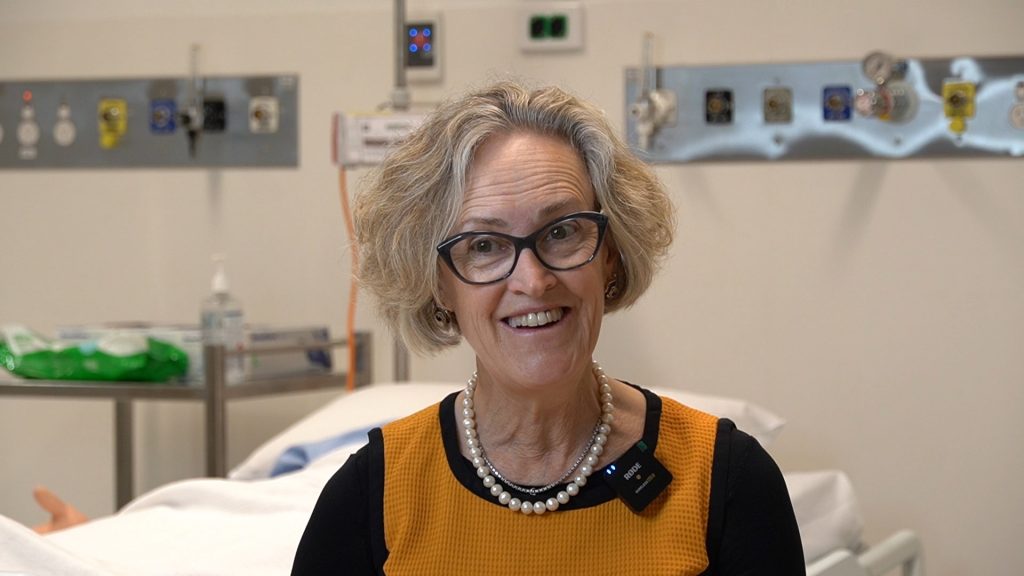In this Q&A we ask Central Adelaide gastroenterologist, Professor Jane Andrews, some common questions about inflammatory bowel disease.
What causes inflammatory bowel disease?
Inflammatory bowel disease (IBD) is a group of conditions where there is visible inflammation in the bowel and that usually causes tissue damage.
We know that in some people there are genetic predispositions to inflammatory bowel disease, and we know there are also some dietary associations. There’s a lot of research interest now into the microbiome.
Is IBD the same as irritable bowel syndrome?
It’s a really good question because a lot of people in the community do confuse irritable bowel syndrome (IBS) and IBD. With IBD there’s inflammation and tissue damage.
In IBS, people have a lot of symptoms, and they are really very real and they involve discomfort in the abdomen, bloating pain, change of your bowel habits, constipation or diarrhea or both.
But when we do tests, the bowel looks fine, and that’s where it’s got the name of being irritable because it’s giving symptoms without us seeing lesions or damage or inflammation.
“So, the difference between IBS and IBD is really whether there is visible inflammation or whether there are symptoms of irritability or being unhappy without visible inflammation.”
What role does diet quality play in managing symptoms?
So quality and quantity in diet are both really important in managing IBD. When we talk about quality, we’re talking about fresh food that we can recognise, that’s got fibre in it, it’s got micronutrients, it’s got trace elements.
So food that’s not too calorie dense for your average person that they are putting in too many calories in one mouthful and they don’t get a satiety signal. This means that it doesn’t make you feel full and it’s kind of like that saying ‘second on lips and a lifetime on your hips’ problem.
Foods that are really calorie-dense are things like fried donuts or really rich chocolate. If you’re going to have those things, just be aware they’re very calorie-dense.
“There is also now more evidence that food additives and highly processed foods might increase the risk of IBD in general, or of a flare.”
There is also some thinking that a high sulphur load in the diet might be important in causing or provoking ulcerative colitis flares. These bits of newer information are leading researchers to now be making more targeted dietary suggestions for an IBD-protective diet.
“Lots of fruits and vegetables, more grains, less meat, less packaged/processed food, and avoiding high saturated fat and high sugar foods. The good news is that this is generally in line with healthy diet recommendations for the normal population.”
Can the low FODMAP diet help with inflammation?
The low FODMAP diet is not an anti-inflammatory diet. The low FODMAP diet can be used to manage symptoms, not to decrease inflammation. And in fact, being strictly low fodmap for too long may be pro-inflammatory.
Can an alkaline diet improve symptoms of inflammatory diseases?
I’m not aware of any evidence that a diet where the pH of your food is changed does anything. It is good to remember that our stomach produces a large amount of acid secretions, and our duodenal and pancreas make a large amount of alkaline ones, so the alkalinity of foods is probably overwhelmed by our own gut.
Can hypnosis help with IBD?
So hypnosis is a really interesting aspect of therapy not only for IBD but also in IBS.
It’s really successful for people with IBS and other functional GI disorders, where we have symptoms without tissue damage – for example indigestion where there’s no ulcer is another treatment area for hypnotherapy.
Read how Intestinal ultrasound (IUS) is being used by the IBD service at The Queen Elizabeth Hospital to monitor how disease is progressing and how patients are responding to treatment.



